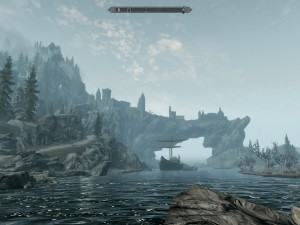Using VR as a therapy for patients in hospital
During my ongoing literature review I often discover interesting facts about things I’ve never thought about. Sometimes I can connect these facts with my own observations: The result is mostly a completely new idea why things are as they are. Maybe these ideas are new to you, too. Therefore I’ll share my new science based knowledge with you!
This week: This time, I think about the potential effectiveness of VR applications as a therapy for patients in hospital.
Computer games are very engaging virtual environments that allow players to get into the state of flow. While being in the state of flow, the players are completely immersed in the gameplay, hence they forget about everything that surrounds them. In addition, players experience a very satisfying form of joy while they are in the state of flow. In the end, playing computer games becomes a very rewarding and entertaining experience that keeps players motivated to continue playing the games.
Normally, the immersive nature of computer games is what attracts most or even all of the computer game players as it allows them to easily experience new challenges and positive emotions thus allowing them to relax from their everyday life. In addition, it can also provide them with positive emotions that help them to have a more positive attitude towards the challenges they face on a daily basis.
These special distracting and motivating characteristics of computer games are also what make them so important as a special form of therapy for seriously-ill children in hospitals. Computer games distract them from their illnesses and treatments as well as help them to deal with the anxiety and boredom they experience during a stay in a hospital [1]. In the end, playing computer games improves the mood of the patients and helps them to overcome their illnesses.
Now, as the next generation of VR devices is available, computer games have become even more immersive as they allow players to completely surround them in a virtual environment. In addtion, as the VR devices fully cover a player’s eyes, it is less likely that something in the real world distracts the player from the gameplay. Also, VR devices allow the players to turn their head without losing contact with the virtual environment.
This essential feature of VR devices could be very important when VR applications are used for the purpose of distracting patients in a hospital. While playing a VR game, patients are not only distracted from the treatment they receive, they even can not see what the doctors are doing thus reducing their anxiety during the treatment
In the end, VR could even improve the effectiveness of computer games as a therapy for patients in hospital.
Conclusively, I like to raise awareness for ChildsPlayCharity.org, a game industry charity dedicated to improve the lives of children in hospital.


